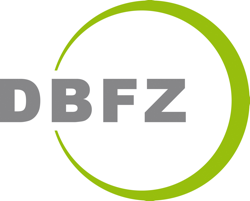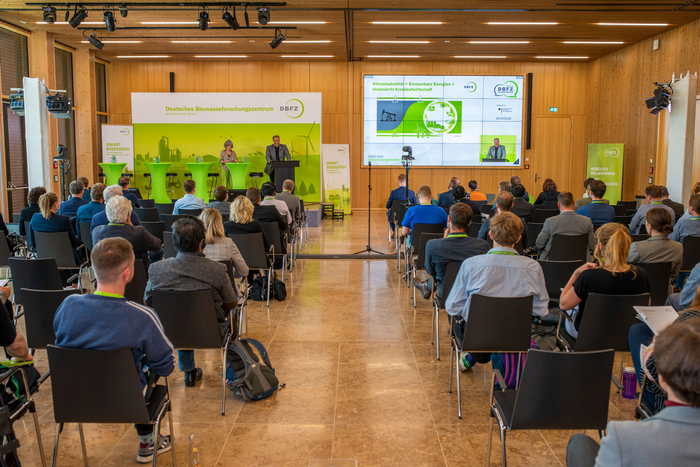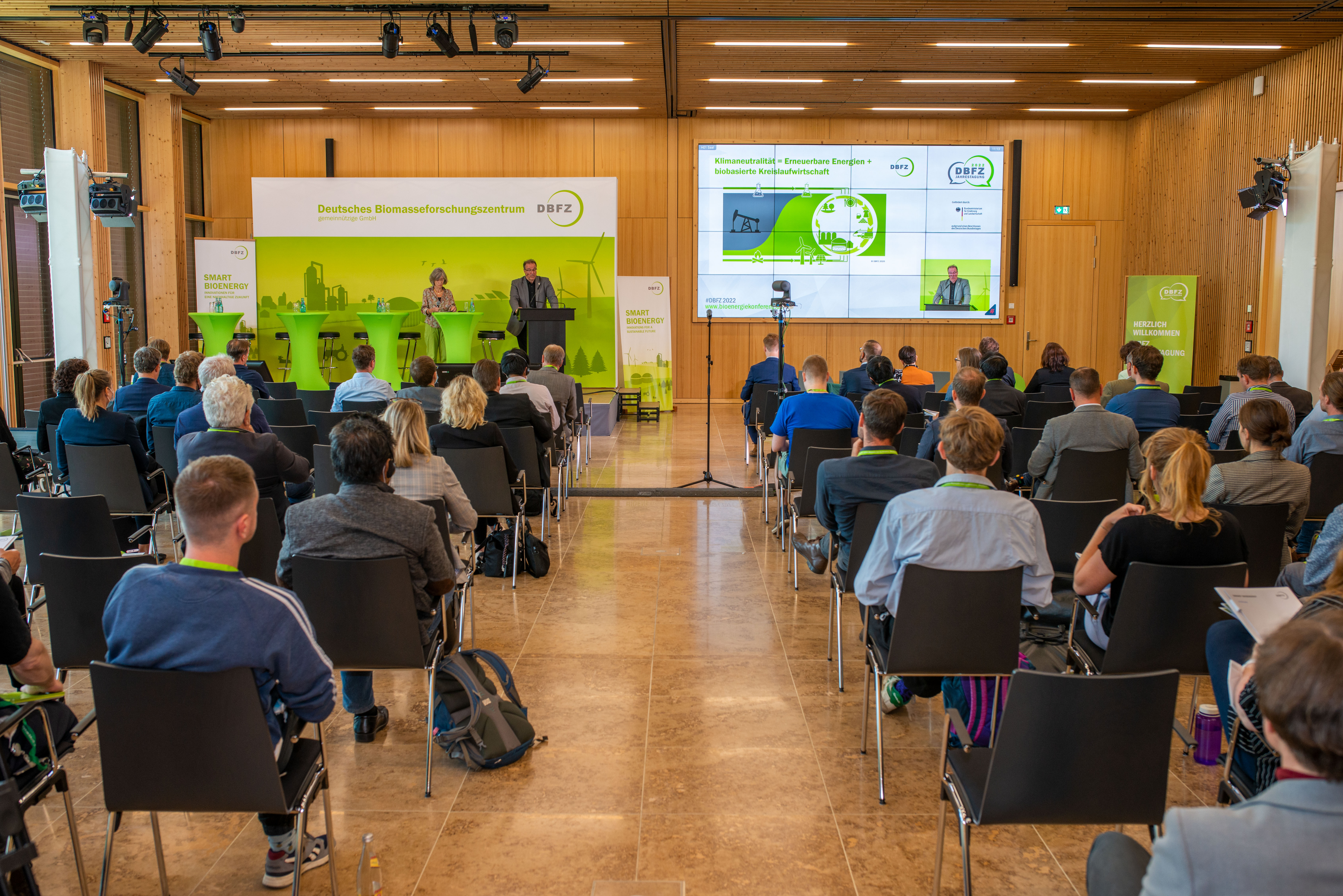DBFZ Annual Conference: Bioeconomy, circular economy and innovative bioenergy research are to pave the way for the "GreenDeal"
At the DBFZ´s annual conference from 21-23 June, the challenges of the European "Green Deal" were discussed and current research topics in the field of bioenergy were presented. After a two-year break from Corona, the annual conference of the DBFZ was held again for the first time in the presence of almost 200 participants. The conclusion of this year's event was that the bioeconomy, a functioning circular economy and innovative research are key to the successful implementation of the "Green Deal" and can and must be used to meet the current political, economic and ecological challenges.
Numerous representatives from politics, business and science took advantage of this year's DBFZ annual conference to gain an overview of the status quo in bioenergy research, to establish personal networks and to discuss topics such as energy supply, climate protection, the bioeconomy, the circular economy and current research approaches. In addition to political representatives from the BMEL (StS Silvia Bender) and BMWK (Dr Christine Falken-Großer), the Saxon State Ministry in the person of Dr Gerd Lippold (State Secretary for Energy, Climate Protection, Environment and Agriculture) also made the journey to Leipzig and emphasised the importance of the above-mentioned topics for the Saxon state government.
In her welcoming address, Silvia Bender, State Secretary of the Federal Ministry of Food and Agriculture, pointed out against the backdrop of the Russian war of aggression on Ukraine that the already pressing tasks have now become even more acute: "The bioeconomy is the central building block that must contribute to all the current challenges. It makes an indispensable contribution to our goal of making society climate-neutral by 2045". In this context, research on biomass use as a sub-area of the bioeconomy has a very high priority. On the one hand, it shows the opportunities, but also the limits of the use of renewable raw materials, said Bender.
As a representative of the EU Commission, Dr. Maria Georgiadou also made it clear in her keynote speech "Bioenergy in the European Green Deal and the RePowerEU" that all available technologies are needed to implement the Green Deal in order to make the transition to a modern, resource-efficient and competitive economy that no longer emits net greenhouse gases by 2050 and has decoupled its growth from resource use.
Bioenergy research needs better implementation of results in policy and practice
Within the framework of a total of five sessions, the three-day event was then dedicated to selected topics of bioenergy research. The focus was on aspects such as "sustainable mobility" and the role of renewable energies in reducing GHG emissions, secure and networked electricity and heat supply through integrated and smart bioenergy and, last but not least, the question of what role biomass can play in a sustainable circular economy. There was consensus among all participants on this point in particular: the potentials are limited, therefore biogenic residues and waste materials represent an essential material flow for a sustainable circular economy and bioeconomy and should be used in preference to fossil raw materials, according to Prof. Dr. Christina Dornack from the Expert Council on Environmental Issues at the Technical University of Dresden.
Finally, the participants also agreed on another statement: bioenergy research is important, diverse and innovative, but it must be better transferred into practice in the future. "We have great research, but there is still a lot of catching up to do in terms of implementation in practice and in politics," was the tenor of the representatives of all the federal and state ministries present, as well as of industry. Not only against this background, various pitch & matchmaking sessions as well as a poster exhibition were an essential part of this year's conference programme. The prize for the best pitch was awarded to Mr Reiner Mantsch (EEDEN GerMan UG) for his development on the topic of "Textile Recycling with HTP", the best scientific poster was awarded to Ms Viktoria Scheff (Department of Resource Management and Waste Technology / University of Kassel) for her presentation "BioRestBrennstoff - Energy-efficient use of secondary biogenic residues and waste materials in biomass furnaces through step-by-step processing and fuel fabrication".
Smart Bioenergy – innovations for a sustainable future
The DBFZ works as a central and independent thinker in the field of energy and material use of biomass on the question of how the limited available biomass resources can contribute to the existing and future energy system with sustainability and high efficiency. As part of the research the DBFZ identifies, develops, accompanies, evaluates and demonstrates the most promising fields of application for bioenergy and the especially positively outstanding examples together with partners from research, industry and public. With the scientific work of the DBFZ, the knowledge of the possibilities and limitations of energy and integrated material use of renewable raw materials in a biobased economy as a whole should be expanded and the outstanding position of the industrial location Germany in this sector permanently secured – www.dbfz.de/en.


